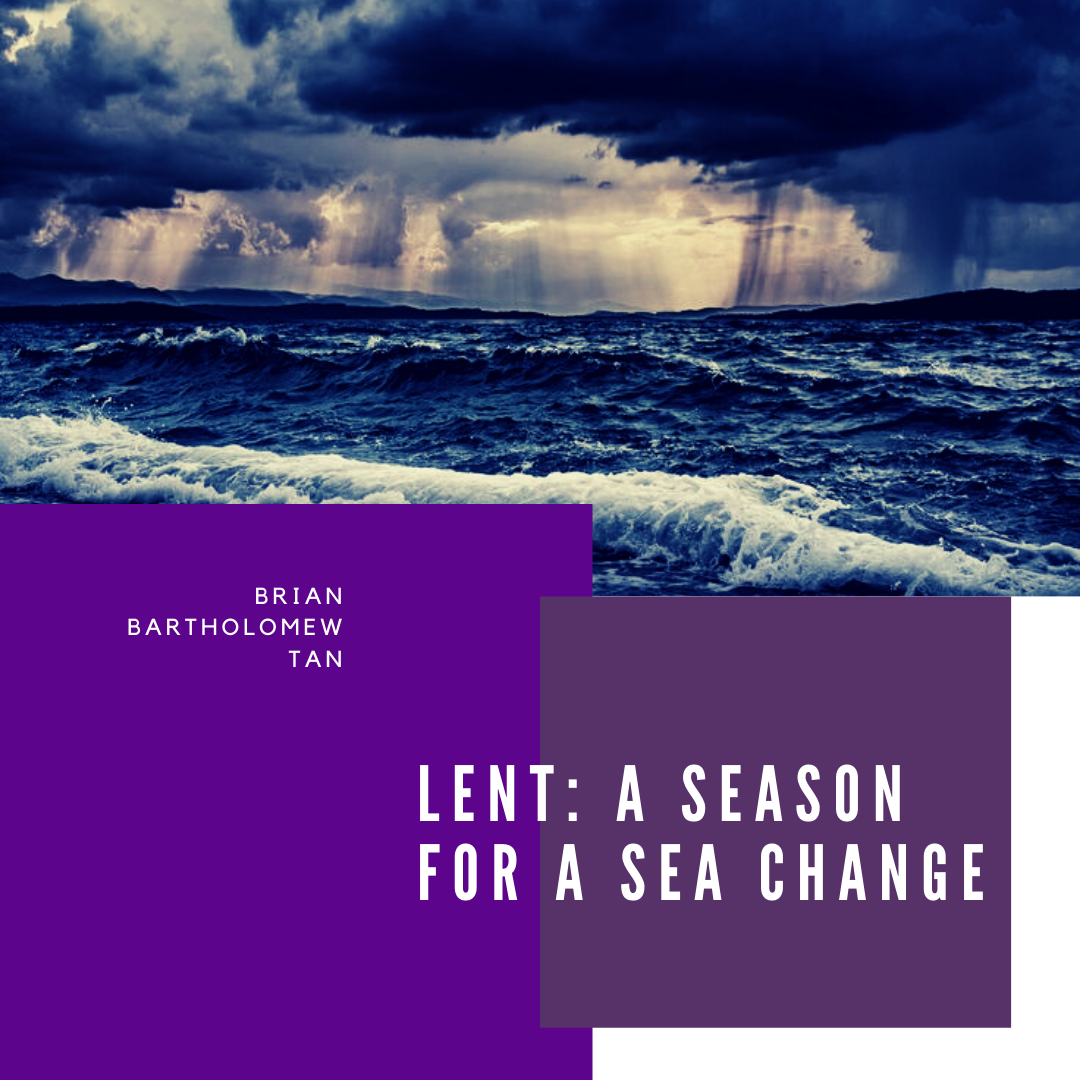The term, “Sea Change” can be traced etymologically to its first use in 1610, when William Shakespeare wrote and produced the play, The Tempest: “Full fathom five thy father lies; Of his bones are coral made; Those are pearls that were his eyes: Nothing of him that doth fade/ But doth suffer a sea-change/ Into something rich and strange. Sea-nymphs hourly ring his knell.” Nonetheless, its use as an idiom only became popularised in the later part of the 1800s. A Sea Change refers to a complete and utter metamorphosis, and a radical change of direction in attitude, disposition, governance, outlook, and purpose (Grammarist, n.d).
Geographically, usually seas remain in a state that is fairly stabilised and constant. This constancy can last decades, even centuries. However, when seas change, that is usually an indication that the weather and the climate is shifting. For instance, a rise in ocean temperatures leads to alterations in climate patterns around the world, which in turn leads to the incidence of stronger tropical storms, while a rise in sea levels could prove devastating to low-lying coastal areas. (United States Environmental Protection Agency, n.d.). A sea change causes turbulence, and disrupts the tranquility of the status quo. A sea change usually signifies a complete departure from the previous condition of the sea.
Our Baptism is exactly a type of sea change. Passing through the waters of new life, our beings become transformed as we renounce our old lives. “Through Baptism we are freed from sin and reborn as sons of God; we become members of Christ, are incorporated into the Church and made sharers in her mission: ‘Baptism is the sacrament of regeneration through water in the word.'” (CCC. 1213, n.d.) Yet Baptism is not a one-off event. A process leads us to Baptism, and after Baptism we continue to be formed and nourished by the Word, by the Sacraments, by the teachings of Mother Church, and by the faith communities we belong to. As CCC. 1270 states, “‘Reborn as sons of God, [the baptized] must profess before men the faith they have received from God through the Church’ and participate in the apostolic and missionary activity of the People of God.” (n.d.) The Sea Change does not end with Baptism, but continues via the apostolic and missionary work that has been entrusted to us – “to be built into a spiritual house” (CCC. 1268, n.d.) and to ” proclaim the Gospel to all nations and to baptize them” (CCC. 1257, n.d.).
The season of Lent serves thus a preparatory season when we prepare ourselves for the radical transformation and the triumph of Christ over death at Easter, and as we renew our Baptismal vows.
In the course of Scripture and of Salvation history, we see many of such seasons of preparation as the people awaited the Sea Change – the unfolding of God’s Promises that was to come – Joseph in the Book of Genesis interprets the dream of Pharaoh correctly through the wisdom of God and begins to preparations to save Egypt from famine:
Therefore, let Pharaoh seek out a discerning and wise man and put him in charge of the land of Egypt. Let Pharaoh act and appoint overseers for the land to organize it during the seven years of abundance. They should collect all the food of these coming good years, gathering the grain under Pharaoh’s authority, for food in the cities, and they should guard it. This food will serve as a reserve for the country against the seven years of famine that will occur in the land of Egypt, so that the land may not perish in the famine.
Noah begins the construction of the Ark in obedience to the command of God, and the Ark sails over the depths of the flood for many days as it yearns for and seeks out dry land (Genesis 6); Joshua leads his men to march around Jericho for 7 days in obedience to the Lord (Joshua 6); While Moses leads the Hebrews in the desert for 40 years before they were ready to enter the Promised Land (Exodus). The Israelites themselves underwent 14 generations of preparation before Jesus was incarnate and became Man (Matthew 1). Nonetheless, despite the seasons of refinement, were the people open to the fact that the Messiah had already come? Some were, but not all. Paralleling Israel’s 40 years in the desert, before the fulfilment of His Ministry, Jesus also spent 40 days in the wilderness to prepare Himself for the tasks ahead (Matthew 4) – This too was significant, as it revealed that Jesus would be the one to fulfil God’s new covenant with His people.
Thus, taking our cue from the events from Scripture and from Jesus Himself, we undergo our own preparatory season during the liturgical season of Lent. Would our fasting, mortification, and sacrifices prove fruitful or would these ritual and routine exercises come forth meaningless, futile, and barren? Would Lent have led us to our Sea Change, or would we have drowned in the deeps like Pharaoh’s soldiers who were chasing after the ones who held the Promise.
By the Grace of God,
Brian Bartholomew Tan
References
Catechism of the Catholic Church. (n.d.) Article 1 The Sacrament of Baptism. Catechism of the Catholic Church. https://www.vatican.va/archive/ccc_css/archive/catechism/p2s2c1a1.htm
Grammarist. (n.d.) Sea Change. In Grammarist. Retrieved March 4, 2021, from https://grammarist.com/idiom/sea-change/#:~:text=The%20expression%20sea%20change%20is,Into%20something%20rich%20and%20strange.
United States Environmental Protection Agency. (n.d.) Climate Change Indicators: Oceans. United States Government. Retrieved March 4, 2021 from https://www.epa.gov/climate-indicators/oceans#:~:text=Changes%20in%20ocean%20temperatures%20and,damage%20and%20loss%20of%20life.

